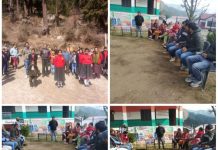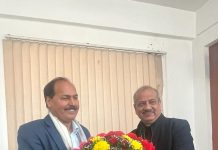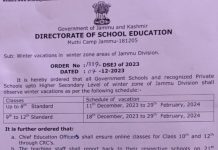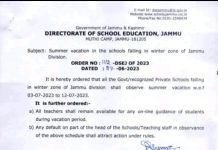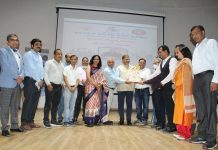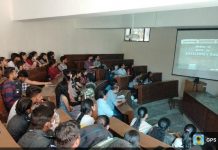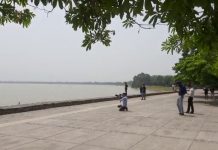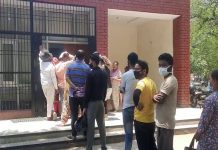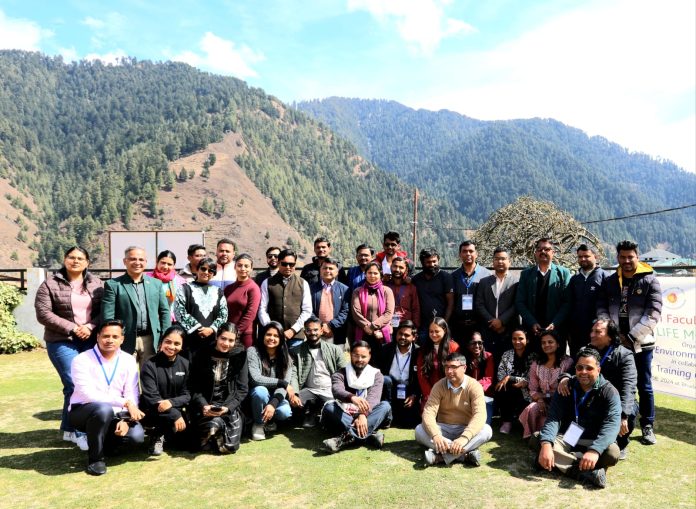Bhaderwah March 9 : Week long national workshop cum Faculty Development Programme on ‘Techniques for Wildlife Monitoring in the Himalayas, concluded successfully in a simple valedictory ceremony held in Bhaderwah Campus here today
The workshop organised by Institute of Mountain Environment, Bhaderwah Campus in collaboration with Malaviya Mission Teacher Training Centre (MMTTC), University of Jammu, was attended by 40 participants including the faculty and researchers from different institutes across India.
Prof. J. P Singh Joorel, Rector, Bhaderwah Campus in his message complimented the Institute of Mountain Environment Bhaderwah Campus especially organizing Secretary Dr Neeraj Sharma for bringing a large number of participants from around the country and engaging them to the most recent advances in wildlife monitoring in the Himalayas. While talking with workshop participants on many occasions, he urged them to build joint proposals and begin working on collaborations. “The doors of IME are always open to scientific associations,” he stated.
Dr. Neeraj Sharma, Organising Secretary of the workshop, stated his complete satisfaction in reaching the anticipated goals, as the workshop participants were introduced to different techniques and protocols used in wildlife monitoring in the Himalayas.
While presenting the workshop report, stated that 23 sessions of 90 minutes were held across five days that included the lecture series, hands on workshops on equipment and statistical tools and field trips, he stated. Major thrust was given to the field data collection, collation and analysis followed by practical exposure to the working of the modern equipment such as camera traps, rangefinder, radio collars, quadcopters and PTTs, etc.
Hands on sessions on the application of R in field data analysis followed by habitat suitability and occupancy modelling were held. A session on butterfly curation generated immense interest among the participants.
The resource persons included Dr. M.K Kumar, CCF, Jammu; Dr. Koustubh Sharma, Director Science and Conservation, Snow Leopard Trust, Bishkek; Dr. Yashveer Bhatnagar, Country Head, IUCN, New Delhi; Dr. Khursheed Ahmed, Head Mountain Wildlife Division, SKUAST – Kashmir; Dr. Ashwin Viswanathan, Nature Conservation Foundation, Mysore; Dr. Tariq Ahmed, Department of Wildlife protection, J&K; Dr. Muzaffar Ahmed and Dr. Shakha Sharma from department of higher Education, J&K.
The fundamentals of field data collection along with the installation and working of the equipment and field gadgets was explained by different resource persons during the field trip to snow bound mountains. Routine morning bird walks led by Dr. Ashwin Viswanathan were another attraction, with the majority of the participants seeing new species of birds.
Dr. Ashwin Viswanathan, one of the resource persons, emphasized the relevance of this unique mountain ecosystem, which is a birding hotspot with a lot of research potential in terms of bird surveys and monitoring.
Dr. Jatinder Manhas, Head Computer Applications and IT, Bhaderwah Campus, underlined the need of interdisciplinarity among different streams and advocated for partnership to enhance the scientific outputs.
Dr. Chhering Tandup, Head of Geography at IME, emphasized the importance of such scientific interactions, particularly in locations like Bhaderwah, which serves as an open ecological laboratory with a lot to work on.
In his thanks giving speech, Dr. Shayan Javeed, Department of Economics, IME, in addition to thanking the workshop participants, and the entire fraternity of Bhaderwah campus conveyed a warm gratitude to Prof. J P Singh Joorel, Rector Bhaderwah Campus and Prof. Sandeep Pandita, Director, MMTTC, University of Jammu for their consistent support and guidance in ensuring workshop’s success.


